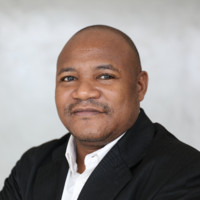The Africa Health Budget Network (AHBN) has demanded the urgent release of allocated funds for family planning, adolescent health, and immunisation in the 2025 national budget, warning that delays threaten critical service delivery across Nigeria.
The appeal, issued ahead of the Joint Annual Review (JAR) of the health sector commencing Wednesday in Abuja, was led by AHBN Executive Director Dr. Aminu Magashi Garba. The review, themed “All Hands, One Vision,” will convene the Coordinating Minister of Health and Social Welfare, state commissioners, development partners, and National Assembly members to assess progress and chart reforms.
“We call on the Federal Government and the Ministry of Health to fully release the 2025 family planning budget, including the $4 million counterpart funding under the Presidential Initiative for Unlocking the Health Value Chain,” Dr. Magashi stated during a congress of the Association of Nigeria Health Journalists (ANHEJ) in Abuja.
He further urged all tiers of government to disburse the full adolescent health and well-being allocation, emphasizing its role in reducing youth mortality and strengthening health systems. “Investing in young people is investing in Nigeria’s future,” he said.
AHBN also pressed for transparency in the management of the recently released ₦32.9 billion under the Basic Health Care Provision Fund (BHCPF) and demanded the immediate disbursement of the ₦231 billion earmarked for immunisation in 2025—none of which has been released to date.
“Progress has been made with direct funding to facilities, but accountability must be airtight,” Dr. Magashi stressed. “Every naira must translate into measurable health outcomes.”
Speaking as ANHEJ patron, Dr. Magashi advocated for a robust media and communication strategy to amplify health advocacy. He pledged support—through AHBN and partners like the Community Health and Development Foundation (CHDF)—to revitalize ANHEJ’s digital presence, including regular website updates and active social media engagement.
“A dormant website is a missed opportunity,” he warned. “We need a dedicated communication focal person—perhaps a young, tech-savvy health journalist volunteering their skills—to keep our platforms alive and impactful.”
Dr. Magashi also called for streamlining the Health and Emergency Fund to provide swift support to journalists facing medical or financial crises. He recommended recruiting members with fundraising and ICT expertise to enhance efficiency and explore online crowdfunding.
“Bureaucracy must not stand in the way of helping our own,” he insisted.
Commending the media’s role in driving accountability, Dr. Magashi urged journalists to leverage their platforms to sustain pressure on government commitments. “Our collective voice is a catalyst for change,” he concluded. “Through transparency, collaboration, and relentless advocacy, we can ensure no Nigerian is left behind in the quest for better health.”

